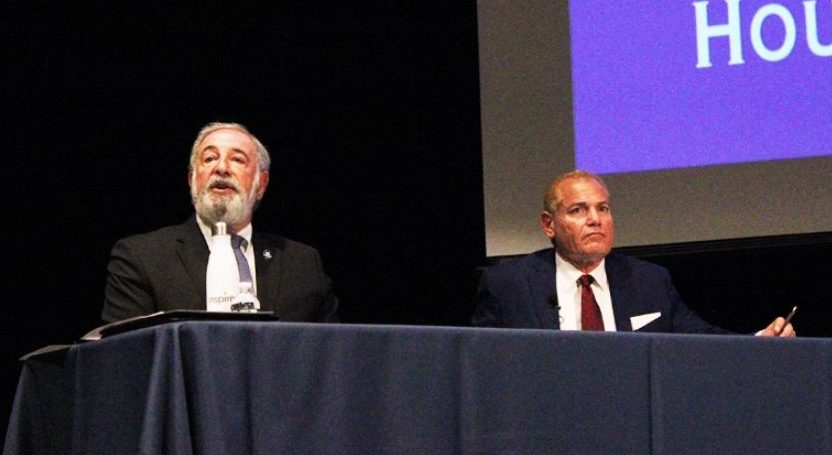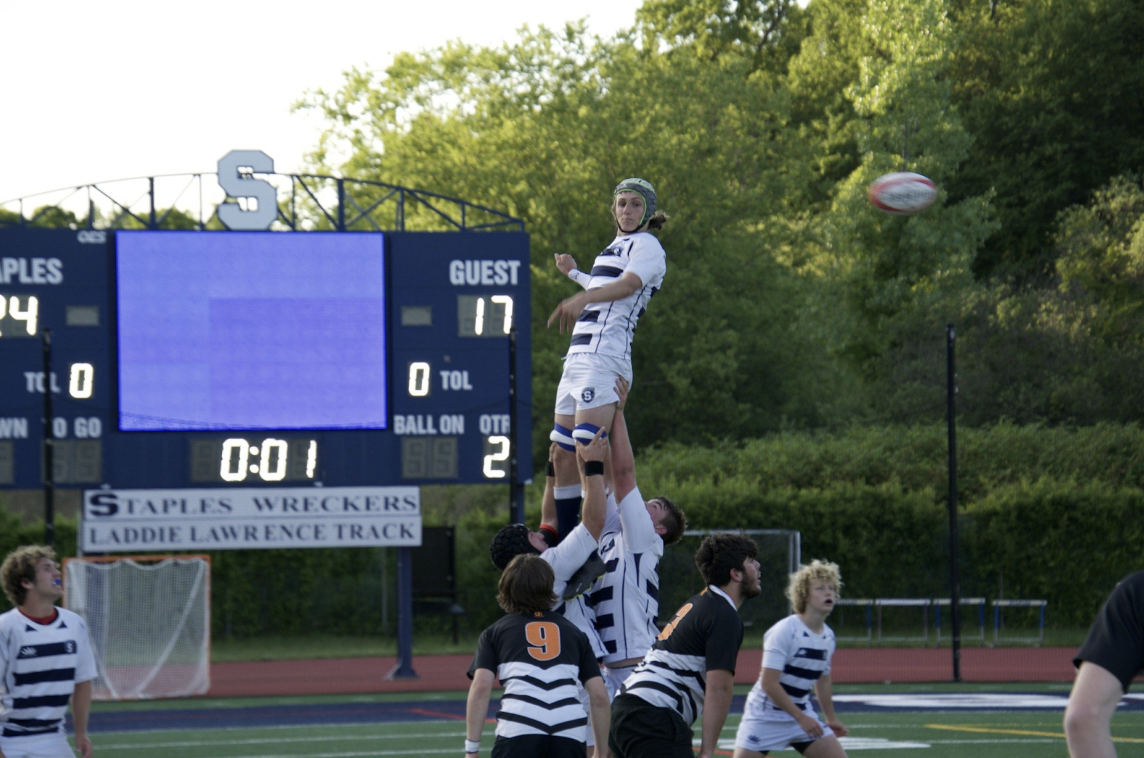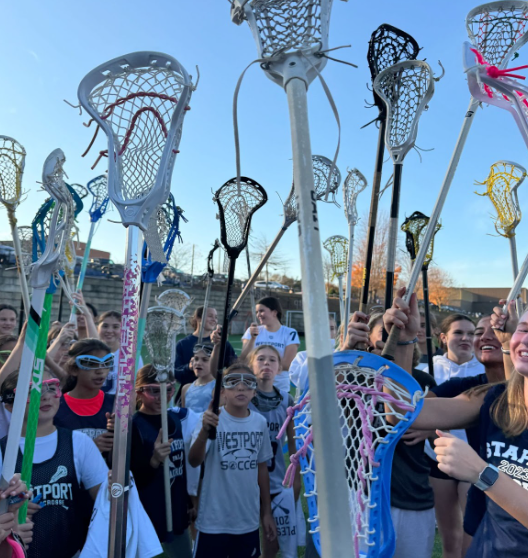Fans that scream at the T.V. as if players can hear them and hang jerseys on the wall with care usually reserved for an authentic Picasso. These people would do anything to get a little closer to the bright lights of the NFL.
It’s not exactly the same thing as owning the New York Giants, but fantasy football is a nice halfway point between the couch and the sidelines.
Fantasy football has exploded over the last fifteen years, valued by “Business Insider” at $800 million by 2012. What is now a national industry had fairly modest beginnings.
Math teacher Lenny Klein and social studies teacher Jon Shepro remember the pre-mainstream fantasy football. They started in 1994, as co-owners of a team in a league at their accounting firm.
“We had a live draft,” Shepro reminisced. “If you wanted to change your lineup you got on the phone and pressed buttons.”
Though there are now online drafts and smartphone apps for managing teams, Klein says the essentials of the game are still the same.
“You draft players, they perform…you either earn points or you don’t earn points,” Klein said. “That really hasn’t changed in the 19, 20 years since I started.”
What is new, Klein noted, is everything that exists around fantasy football. There are websites, TV shows, magazines and blogs. There are even insurance companies that will compensate an owner if his key player gets injured.
All this floats around on the web and with smartphones, fantasy owners are constantly connected. According to a firm in Chicago, it’s a distraction that has cost American businesses about $6.5 billion of lost time.
It’s safe to say that Staples teachers have lost some time as well. Adam Dulsky ’14 admits to checking on his team when class is slow.
“It’s something to do, especially if I’m a little bored,” Dulsky said.
It’s not just students who feel the pull. Social studies teacher Catherine Schager says she is as addicted as any teenager, even though she knows how irrational it is.
“Being able to check all the time just makes you want to check more,” Schager said. “But what changes from one day to the next?”
“I’ve always been fascinated by how many statistics guys can keep in their heads…and [they] can’t even tell me ballpark when World War One was?” she laughed.
But she understands the obsession, saying it is a way for fans to make the game they love personal.
Other fantasy football owners agree that their fantasy team connects them to the sport. A game you normally wouldn’t care about is much more interesting if you just fantasy-drafted a quarterback that’s on the field.
Many fantasy owners will up the stakes further by adding money to the equation. Leagues will charge an “entry fee” and pool the money. At the end of the season, the best teams win some cash.
Sometimes this means fantasy owners find themselves in a conflict of interest. What happens when players from their fantasy team go up against the team they support in real life?
Jack Cody ‘14, a Cleveland Browns fan, stays loyal.
“Always Browns over fantasy,” he declared.
But Dulsky, a Philadelphia Eagles fan, has gone the other way.
“I’m probably going to root for my fantasy player because money is on the line and you gotta win the money,” Dulsky said.
Don’t underestimate the complexity of this quandary. It may be imaginary, but fantasy football is for real.











































